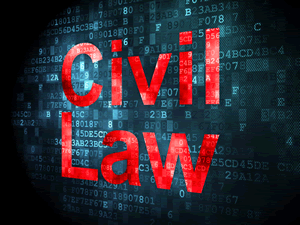Condition Subsequent
What does Condition Subsequent mean?
The Definition
A condition subsequent outlines when an event or happening can bring an end to something else. It can be when the event actually happens, or if the event fails to to continue to happen, all depending on the case itself. In legal cases, a condition subsequent specifies when a certain state of affairs can end a person's legal rights, current duties, or position.
What a Condition Subsequent Can Look Like
A condition subsequent can be something like:
- When I don't fill up my car with gas, it will stop running.
OR
- If I keep my gas tank filled up, my car will continue to run.
In both cases, running out of gas is a condition subsequent to keeping the car in running condition.
In contract law, for example, a contract could end in case of an event, such as:
- If a car is totalled or demolished in a tragic or non-preventable accident, the contract between the car owner and the dealership or bank could come to an end.
Condition subsequents can be outlined in all kinds of contracts, including property contracts, employment contracts, ownership contracts, or other types of agreement contracts between two parties. Depending on the specific contract and situation or relationship will depend on the condition subsequents that can be outlined within the contract itself.
Related Pages
Contract Law Attorneys near
Term of the Day
Wage Garnishment
A wage garnishment is a court order allowing an employer to withhold a specified amount of income for repayment for a debt.
Category: bankruptcy



